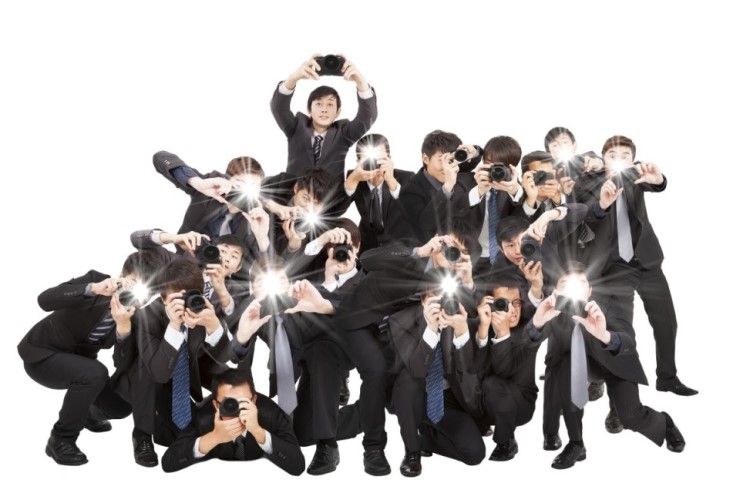 |
Celebrities are often in the spotlight, but not always for their craft. Fans are often more concerned about the personal lives and private affairs of the favorite actors, musicians and other artistic personas. Social Network Services (SNS) feed the public’s desire to get to know these stars, often exposing personal information without the express permission of the celebrity. For example, scrolling through Facebook, you can find lots of posts about the private lives of celebrities, covering both good and bad news. Netizens then share their opinions about the personal lives of these people without actually knowing the celebrity they are talking about. They treat celebrities the same way they treat public officials, holding them accountable to the same high standard of behavior. However, contrary to their beliefs, celebrities do not owe the public anything and should not be treated like public officials. They should be free to pursue their own lives in a manner they see fit.
A celebrity’s every move, including personal information like relationships or family matters, is monitored by the general public, groupies, and reporters. They stalk, harass and hack the celebrity’s SNS accounts, all to feed the public’s insatiable need for gossip. This is a big problem in Korea and around the world. G-Dragon, a member of the K-pop group Big Bang, was recently a victim of social media harassment. His private SNS was hacked by a fan and confidential information about the life of the singer was leaked to the public. As a result, rumors surfaced that G-Dragon and Komatsu Nana were dating. This led the pop star to post the message “I can’t handle people anymore” on his SNS. This was a clear message to the public that the harassment was too much, but it did little to cure the public’s insatiable need for more celebrity gossip.
With judgement rampant regarding celebrity behavior, in order to avoid the sharp criticism of the public, celebrities are compelled to act as exemplary citizens and try hard to build a good image and serve as a role model to others. A primary example for this is Yoo Jae-suk, otherwise known as “God Yoo”. So how did we get to this place where celebrities are held to the same standard of behavior as public officials and why isn’t their privacy being respected by the public?
A public official and a celebrity share many traits in common. They are both often written about in newspapers and magazines or can be seen on television or heard on the radio. But does this mean we should hold them both to the same high standard of behavior? Do we have a right to infiltrate, expose and judge their personal lives? Should they have to take full responsibility for the way they act or the things they say?
The difference between a public figure and a celebrity should be determined by the origin of their salary. A public official earns money from our tax dollars, while a celebrity is paid simply to entertain. In Korea, we are far too quick to label everyone in the public eye as a public figure, while other countries will treat the categories separately. In Korea people think celebrities, broadcasting jockeys, or Ulzzang are also public figures. However, celebrities are entertainers, singers or actors, while public figures are politicians, the President, and other government functionaries. While the latter draws a salary from the taxes of the people, celebrities do not, and for this reason, they do not owe the public any form or standard of behavior, nor is their private life the business of the public. They have the right to have their privacy protected, just as any ordinary citizen does. Watching their every move and arguing about their behavior is actually a crime.
It is true that fans have an insatiable curiosity regarding the lives of celebrities; however, we also need to recognize that they are private citizens too, and have a right to live their lives in peace, free from the ever critical eye of the public.
윤정애 dankookherald@gmail.com

![[Campus Magnifier] Let's Surf the Library!](/news/photo/202404/12496_1765_4143.jpg) [Campus Magnifier] Let's Surf the Library!
[Campus Magnifier] Let's Surf the Library!
![[Campus Magnifier] Let's Surf the Library!](/news/thumbnail/202404/12496_1765_4143_v150.jpg)





